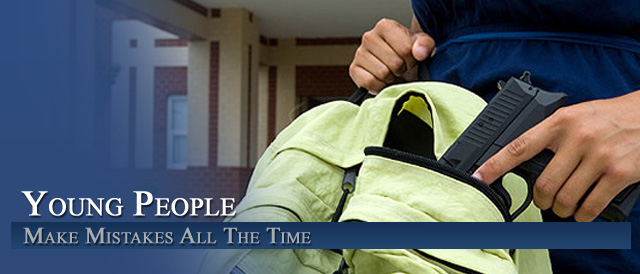
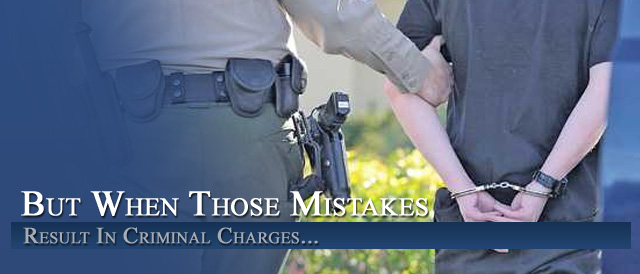
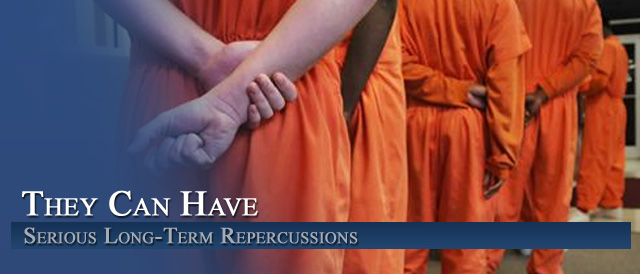
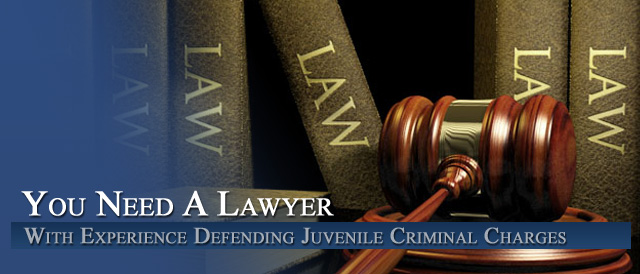
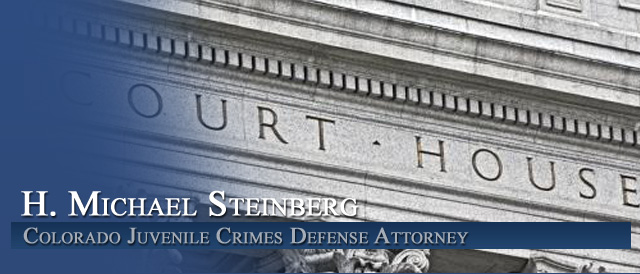
Colorado Juvenile Sentencing Part 2 – The Direct File Juvenile Offender Law
By H. Michael Steinberg Colorado Juvenile Criminal Defense Lawyer – Attorney
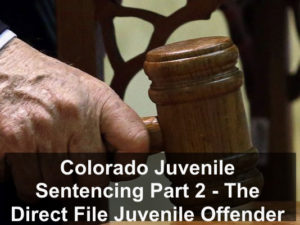 Colorado Juvenile Sentencing Part 2- The Direct File Juvenile Offender Law – When and under what circumstances the District Attorney can force a juvenile criminal case into adult court is the subject of this article.
Colorado Juvenile Sentencing Part 2- The Direct File Juvenile Offender Law – When and under what circumstances the District Attorney can force a juvenile criminal case into adult court is the subject of this article.
Two Ways To Prosecute A Child In Colorado Adult Court
All juveniles between the ages of 11 and 17 are required to be prosecuted in Colorado Juvenile Court. There are only two exceptions to that rule:
1. The Judicial Transfer Statute – CRS § 19-2-518, and
2. The Prosecutorial Direct File Statute. CRS § 19-2-517.
It is important to understand that filing a juvenile case in adult criminal court does not mean that it will stay there. Once a juvenile case is filed in adult court, it is also important for parents to know that even if the juvenile has not posted bond, the juvenile remains in juvenile detention and is not transferred to the adult jail.
I. The Colorado Juvenile “Judicial” Transfer Law – CRS § 19-2-518,
Just as the title suggests, these cases all start in Colorado Juvenile Court. In the “normal case,” the juvenile and a parent or guardian are charged using the document called “a delinquency petition.”
However there may come a time when the District Attorney (DA) may decide to file a Motion with the District Court requesting that the case be judicially transferred to Colorado adult criminal court under this law – CRS § 19-2-518 (1).
Upon receipt of the Motion, the Colorado juvenile court sets the matter for an evidentiary hearing at which a Colorado Judge will decide whether to grant the DA’s request. The Judge applies the following criteria at the hearing under CRS 19-2-518 (3):
….
(3) At the transfer hearing, the court shall consider:
(a) Whether there is probable cause to believe that the juvenile has committed a delinquent act for which waiver of juvenile court jurisdiction over the juvenile and transfer to the district court may be sought pursuant to subsection (1) of this section; and
(b) Whether the interests of the juvenile or of the community would be better served by the juvenile court’s waiving its jurisdiction over the juvenile and transferring jurisdiction over him or her to the district court.
(4) (a) The hearing shall be conducted as provided in section 19-1-106, and the court shall make certain that the juvenile and his or her parents, guardian, or legal custodian have been fully informed of their right to be represented by counsel.
(b) In considering whether or not to waive juvenile court jurisdiction over the juvenile, the juvenile court shall consider the following factors:
(I) The seriousness of the offense and whether the protection of the community requires isolation of the juvenile beyond that afforded by juvenile facilities;
(II) Whether the alleged offense was committed in an aggressive, violent, premeditated, or willful manner;
(III) Whether the alleged offense was against persons or property, greater weight being given to offenses against persons;
(IV) The maturity of the juvenile as determined by considerations of the juvenile’s home, environment, emotional attitude, and pattern of living;
(V) The record and previous history of the juvenile;
(VI) The likelihood of rehabilitation of the juvenile by use of facilities available to the juvenile court;
(VII) The interest of the community in the imposition of a punishment commensurate with the gravity of the offense;
(VIII) The impact of the offense on the victim;
(IX) That the juvenile was twice previously adjudicated a delinquent juvenile for delinquent acts that constitute felonies;
(X) That the juvenile was previously adjudicated a juvenile delinquent for a delinquent act that constitutes a crime of violence, as defined in section 18-1.3-406, C.R.S.;
(XI) That the juvenile was previously committed to the department of human services following an adjudication for a delinquent act that constitutes a felony;
(XII) That the juvenile is sixteen years of age or older at the time of the offense and the present act constitutes a crime of violence, as defined in section 18-1.3-406, C.R.S.;
(XIII) That the juvenile is sixteen years of age or older at the time of the offense and has been twice previously adjudicated a juvenile delinquent for delinquent acts against property that constitute felonies; and
(XIV) That the juvenile used, or possessed and threatened the use of, a deadly weapon in the commission of a delinquent act.
(c) The amount of weight to be given to each of the factors listed in paragraph (b) of this subsection (4) is discretionary with the court; except that a record of two or more previously sustained petitions for delinquent acts that constitute felonies or a record of two or more juvenile probation revocations based on acts that constitute felonies shall establish prima facie evidence that to retain jurisdiction in juvenile court would be contrary to the best interests of the juvenile or of the community.
(d) The insufficiency of evidence pertaining to any one or more of the factors listed in paragraph (b) of this subsection (4) shall not in and of itself be determinative of the issue of waiver of juvenile court jurisdiction.
(6) Written reports and other materials relating to the juvenile’s mental, physical, educational, and social history may be considered by the court, but the court, if so requested by the juvenile, his or her parent or guardian, or other interested party, shall require the person or agency preparing the report and other material to appear and be subject to both direct and cross-examination.
(7) (a) If the court finds that its jurisdiction over a juvenile should be waived, it shall enter an order to that effect; except that such order of waiver shall be null and void if the district attorney fails to file an information in the criminal division of the district court within five days of issuance of the written order of waiver, exclusive of Saturdays, Sundays, and court holidays. Upon failure of the district attorney to file an information within five days of the issuance of the written order of waiver, exclusive of Saturdays, Sundays, and court holidays, the juvenile court shall retain jurisdiction and shall proceed as provided in this article
After applying the above criteria, in what often is a hotly and very emotional contested hearing, the Judge must make a specific finding before granting the transfer under Section 8 of the law, before granting the DA’s request.
If the court finds that it is in the best interests of the juvenile and of the public for the court to retain jurisdiction, it shall proceed with the adjudicatory trial as provided in part 8 of this article.
A recent United States Supreme Court decision found that:
“a judge’s decision to transfer a child from juvenile court to criminal court is a “critically important” action with “tremendous consequences” for the child.
“there is no place in our system of law for reaching a result of such tremendous consequences without ceremony—without hearing, without effective assistance of counsel, without a statement of reasons.”
A Colorado District Court Judge applies fourteen different factors before making the Court’s decision
When Is A Colorado Juvenile “Eligible” For A Judicial Transfer?
Children are eligible for judicial transfer if:
1. They are 12 to 13 years of age at the time of the offense and they are accused of a class 1 or 2 felony (first- or second-degree murder, first-degree kidnapping), or a crime of violence;
2. If they are 14 to 17 years of age at the time of the offense and they are accused of any felony.
The safeguards applied to the power of the District Attorney to transfer a case into Adult Court make sense and are built directly into the statute above.
Now we turn to Direct File Cases.
II. The Colorado Direct File Law – CRS § 19-2-517
Colorado juvenile laws provide a powerful and very dangerous method that was designed to permit a District Attorney a way to circumvent the safeguards of the judicial transfer procedures described above.
The Colorado Direct File Law actually gives Colorado State Prosecutors the power to decide whether to file a case in Colorado adult criminal court. The expansion of the DA’s power was the result of what I well recall as a young prosecutor in Arapahoe Court – as the so called 1993 “Summer of Violence.”
In September 1993, a special legislative session considered and then enacted multiple bills aimed at “curbing” youth violence. It was then that the State Legislature first expanded the direct file statute and also created the Youthful Offender System.
But in 2012, the Colorado State Legislature put substantial “brakes” safeguards on Colorado DA’s by significantly reforming the Direct File law limiting the use of the Direct File Law and providing for a method for a Colorado Judge to judicially review the DA’s decision to file a juvenile case in adult court.
Analysis Of The Amended Colorado Direct Filing Law
The 2012 restructuring of the Colorado Direct File law had four major divisions.
The First Major Change To The Colorado Direct Filing Law
The age of eligibility for a Colorado direct filing was raised to 16 for all offenses, so that younger children must begin their cases in Colorado Juvenile Court.
The Second Major Change To The Colorado Direct Filing Law
The crimes that are eligible for direct filing were limited to:
Class 1 and 2 felonies (first-degree murder, kidnapping, second-degree murder);
Violent sex offenses;
Non-violent sex offenses with a prior felony juvenile adjudication; and
Other crimes of violence if the child had a prior felony juvenile adjudication.
If a Colorado juvenile is 16 – to 17 years of age – he or she can be prosecuted immediately in adult criminal court bypassing the juvenile delinquency petition process completely. But the crimes these children can be “direct filed on” are limited and there are crimes, such as vehicular offenses, arsons, first-time crimes of violence (such as robbery), or for an attempted – (not completed) – crimes that are no longer included.
The Third Major Change To The Colorado Direct Filing Law – The “Reverse Transfer” Hearing
Prior to the 2012 amendments to this law, Colorado DA’s had sole discretion to “direct file” without any review of that decision by a Colorado Judge.
Unlike the old direct file law – the amended law provides for the right to request an evidentiary hearing on the issue of whether a specific juvenile case should remain in adult court or be transferred to juvenile court.
This evidentiary hearing is called a “reverse transfer” or “reverse waiver” hearing.
If a Colorado criminal defense lawyer is to stop his juvenile client from being “direct filed” he or she has to file a motion for a “reverse transfer hearing” because this judicial review is not automatically set in a direct file case.
The motion for a reverse transfer hearing must be made before or at the time of a request for a preliminary hearing.
The Colorado Reverse Transfer Hearing In Juvenile Criminal Direct File Cases
At a reverse transfer hearing, the DA must present evidence that establishes “probable cause” for the offenses charged. If there is no probable cause for a “direct file eligible offense” – the case must be dismissed or remanded to juvenile court for a lesser offense.
On the other hand, if the DA establishes probable cause for a “direct file eligible offense” the Judge then must apply eleven different factors to the evidence presented by either party to the hearing.
The eleven statutory factors are printed below and are used by the Judge to determine:
“whether the [child] and the community would be better served by adjudicative proceedings pursuant to [the Children’s Code] or [as an adult].”
The “reverse transfer hearing” is very similar to the “judicial transfer hearing” described above.
The Fourth Major Change To The Colorado Direct Filing Law – Increased Sentencing Options Even If There IS A Conviction In Colorado Adult Criminal Court
The Amended Direct File Law does one last thing. It increases the sentencing options available to the Judge in Adult court. For example, if a child is convicted solely of a misdemeanor offense in adult criminal court, the conviction must be treated as a juvenile adjudication and the child sentenced under the Children’s Code.
Furthermore, if the child is convicted of a felony offense that was not direct file eligible, the child can be sentenced as a juvenile or as an adult.
The worst case scenario, that is when a child is convicted of a direct file eligible offense (an enumerated offense), the criminal court may impose (but is not bound by) the mandatory minimum prison sentences adults face under the crime of violence statute – except for class 1 felonies (first-degree murder or first-degree kidnapping), or sex offenses subject to indeterminate lifetime sentencing.
Summary And Comments
Today, in almost all of the major jurisdictions in Colorado, in light of the “reverse transfer” hearing now given to juveniles, it is unusual for DA’s to choose to “direct file” a case in adult court. It has been my personal experience that is usually only cases that involve older juveniles charged with the most serious crimes –(for example a 17- year old charged with first degree murder with multiple victims, multiple sexual assaults etc.) that may find themselves in Colorado adult court.
The Colorado Direct File Statute In 2017 – § 19-2-517
(1) A juvenile may be charged by the direct filing of an information in the district court or by indictment only if:
(a) The juvenile is sixteen years of age or older at the time of the commission of the alleged offense and:
(I) Is alleged to have committed a class 1 or class 2 felony; or
(II) Is alleged to have committed a sexual assault that is a crime of violence pursuant to section 18-1.3-406, C.R.S., or a sexual assault under the circumstances described in section 18-3-402 (5) (a), C.R.S.; or
(III) (A) Is alleged to have committed a felony enumerated as a crime of violence pursuant to section 18-1.3-406, C.R.S., other than a sexual assault as described in subparagraph (II) of this paragraph (a), or is alleged to have committed sexual assault pursuant to section 18-3-402, C.R.S., sexual assault on a child pursuant to section 18-3-405, C.R.S., or sexual assault on a child by one in a position of trust pursuant to section 18-3-405.3, C.R.S.; and
(B) Is found to have a prior adjudicated felony offense; or
(IV) Has previously been subject to proceedings in district court as a result of a direct filing pursuant to this section or a transfer pursuant to section 19-2-518; except that:
(A) If the juvenile is found not guilty in district court of the prior felony or any lesser included offense, the subsequent charge shall be remanded to the juvenile court; and
(B) If the juvenile is convicted in district court in the prior case of a lesser included or nonenumerated offense for which criminal charges could not have been originally filed by information or indictment in the district court pursuant to this section, the subsequent charge may be remanded to the juvenile court.
(1.5) If, after a preliminary hearing, the district court does not find probable cause for an offense that may be charged by direct filing, or if the direct file eligible offense is dismissed at a later date, the court shall remand the case to the juvenile court.
(2) Notwithstanding the provisions of section 19-2-518, after filing charges in the juvenile court but before the juvenile court conducts a transfer hearing, the district attorney may file the same or different charges against the juvenile by direct filing of an information in the district court or by indictment pursuant to this section. Upon the filing or indictment in the district court, the juvenile court shall no longer have jurisdiction over proceedings concerning the charges.
(3) (a) After a juvenile case has been charged by direct filing of information or by an indictment in district court, the juvenile may file in district court a motion to transfer the case to juvenile court. The juvenile must file the motion no later than the time to request a preliminary hearing. Upon receipt of the motion, the court shall set the reverse-transfer hearing with the preliminary hearing. The court shall permit the district attorney to file a response to the juvenile’s motion to transfer the case to juvenile court. The district attorney shall file the response no later than fourteen days before the reverse-transfer hearing.
(b) In determining whether the juvenile and the community would be better served by adjudicative proceedings pursuant to this article or by proceedings under title 16, C.R.S., the court shall consider the following factors:
(I) The seriousness of the alleged offense and whether the protection of the community requires response or consequence beyond that afforded by this article;
(II) Whether the alleged offense was committed in an aggressive, violent, premeditated, or willful manner;
(III) Whether the alleged offense was against persons or property, greater weight being given to offenses against persons;
(IV) The age of the juvenile and the maturity of the juvenile as determined by considerations of the juvenile’s home, environment, emotional attitude, and pattern of living;
(V) The record and previous history of the juvenile in prior court-related matters;
(VI) The current and past mental health status of the juvenile as evidenced by relevant mental health or psychological assessments or screenings that are made available to both the district attorney and defense counsel;
(VII) The likelihood of the juvenile’s rehabilitation by use of the sentencing options available in the juvenile courts and district courts;
(VIII) The interest of the community in the imposition of a punishment commensurate with the gravity of the offense;
(IX) The impact of the offense on the victim;
(X) Whether the juvenile was previously committed to the department of human services following an adjudication for a delinquent act that constitutes a felony; and
(XI) Whether the juvenile used, or possessed and threatened the use of, a deadly weapon in the commission of the delinquent act.
(c) If the district court determines pursuant to paragraph (b) of this subsection (3) that the juvenile and the community would be better served by adjudicative proceedings pursuant to this article, the court shall enter an order directing that the offenses against the juvenile be adjudicated in juvenile court pursuant to the provisions of this article.
(6) (a) If a juvenile is convicted following the filing of criminal charges by information or indictment in the district court pursuant to this section, the district judge shall sentence the juvenile either:
(I) As an adult; except that a juvenile is excluded from the mandatory minimum sentencing provisions in section 18-1.3-406, C.R.S., unless the juvenile is convicted of a class 1 felony or a sex offense that is subject to part 9 of article 1.3 of title 18, C.R.S.; or
(II) To the youthful offender system in the department of corrections in accordance with section 18-1.3-407, C.R.S.; except that a juvenile shall be ineligible for sentencing to the youthful offender system if the juvenile is convicted of:
(A) A class 1 felony;
(B) Any sexual offense described in section 18-6-301 or 18-6-302, C.R.S., or part 4 of article 3 of title 18, C.R.S.; or
(C) A second or subsequent offense, if the juvenile received a sentence to the department of corrections or to the youthful offender system for the prior offense.
(b) The district court judge may sentence a juvenile pursuant to the provisions of this article if the juvenile is convicted of a lesser included or nonenumerated felony offense for which criminal charges could not have been originally filed by information or indictment in the district court pursuant to this section. If the juvenile is convicted of only a misdemeanor offense or misdemeanor offenses, the court shall adjudicate the juvenile a delinquent and sentence the juvenile pursuant to this article.
(c) If a juvenile is convicted of an offense that is not eligible for district court jurisdiction under either this section or section 19-2-518, the juvenile shall be remanded to juvenile court.
(7) In the case of a person who is sentenced as a juvenile pursuant to subsection (6) of this section, the following provisions shall apply:
(a) Section 19-2-908 (1) (a), regarding mandatory sentence offenders;
(b) Section 19-2-908 (1) (b), regarding repeat juvenile offenders;
(c) Section 19-2-908 (1) (c), regarding violent juvenile offenders; and
(d) Section 19-2-601, regarding aggravated juvenile offenders.
(8) The court in its discretion may appoint a guardian ad litem for a juvenile charged by the direct filing of an information in the district court or by indictment pursuant to this section.
(9) When a juvenile is sentenced pursuant to the provisions of this article, the juvenile’s conviction shall be adjudicated as a juvenile delinquency adjudication.
(10) For purposes of this section, “violent juvenile offender” has the same meaning as defined in section 19-2-516 (3).
Colorado Juvenile Sentencing Part 2 – The Direct File Juvenile Offender Law
If you found any of the information I have provided on this web page article helpful please click my Plus+1 or the Share buttons for Twitter and Facebook below so that others may also find it.
The reader is admonished that Colorado criminal law, like criminal law in every state and at the Federal level, changes constantly. The article appearing above was accurate at the time it was drafted but it cannot account for changes occurring after it was uploaded.
If, after reading this article, you have questions about your case and would like to consider retaining our law firm, we invite you to contact us at the Steinberg Colorado Criminal Defense Law Firm – 303-627-7777.
Never stop fighting – never stop believing in yourself and your right to due process of law. You will not be alone in court, H. Michael will be at your side every step of the way – advocating for justice and the best possible result in your case. H. Michael Steinberg is passionate about criminal defense. His extensive knowledge and experience of Colorado Criminal Law gives him the edge you need to properly handle your case
 ABOUT THE AUTHOR: H. Michael Steinberg – Email The Author at:
ABOUT THE AUTHOR: H. Michael Steinberg – Email The Author at:
A Denver Colorado Criminal Defense Lawyer – or call his office at 303-627-7777 during business hours – or call his cell if you cannot wait and need his immediate assistance – please call 720-220-2277.
“A good criminal defense lawyer is someone who devotes themselves to their client’s case from beginning to end, always realizing that this case is the most important thing in that client’s life.”
You should be careful to make a responsible choice in selecting a Colorado Criminal Defense Lawyer. We encourage you to “vet” our firm. Over the last 35 plus years – by focusing ONLY on Colorado criminal law – H. Michael has had the necessary time to commit to the task of constantly updating himself on nearly every area of criminal law, to include Colorado criminal law and procedure and trial and courtroom practice.
Putting more than 40 years of Colorado criminal defense experience to work for you.
H. Michael works hard to get his clients the best possible results in and out of the courtroom. He has written, and continues to write, extensively on Colorado criminal law and he hopes this article helps you in some small way – Colorado Juvenile Sentencing Part 2 – The Direct File Juvenile Offender Law.
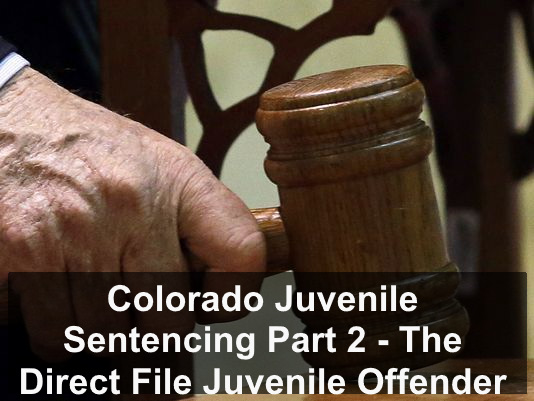
Other Articles of Interest:
- Birdseye Statutory View – Colorado Juvenile Criminal System
- Sentencing – Special Offenders – 19-2-908
- The Colorado Juvenile Criminal Sentencing Hearing – Part III of III
- Juvenile Probation Officers – Powers and Duties 19-2-926
- Procedures at Juvenile Trials 19-2-804












